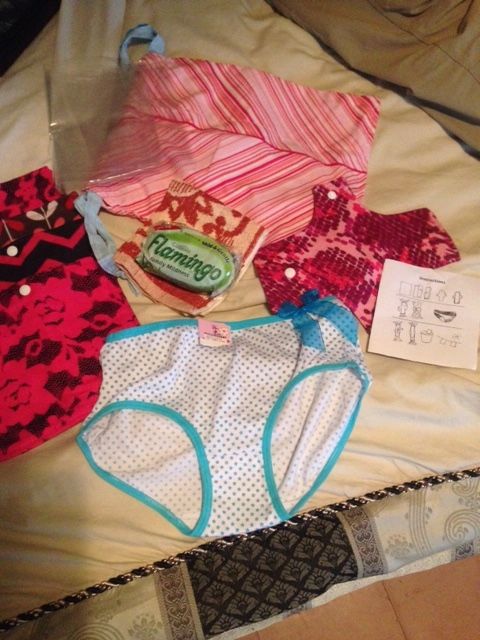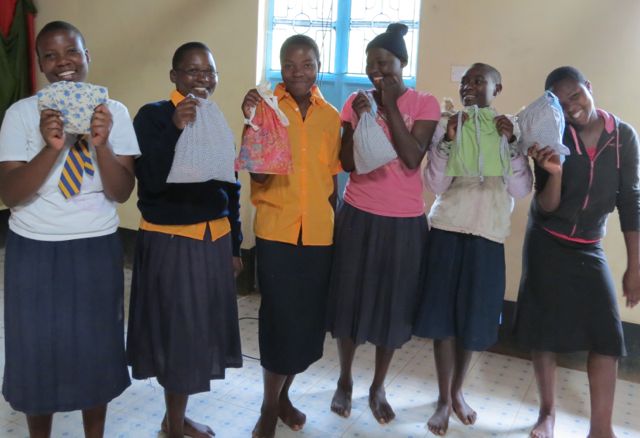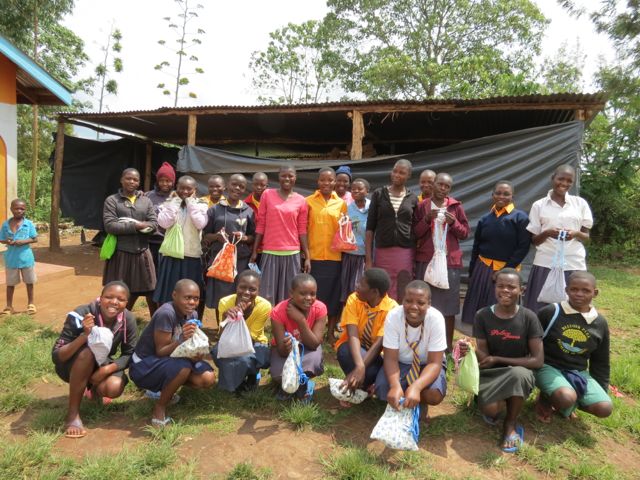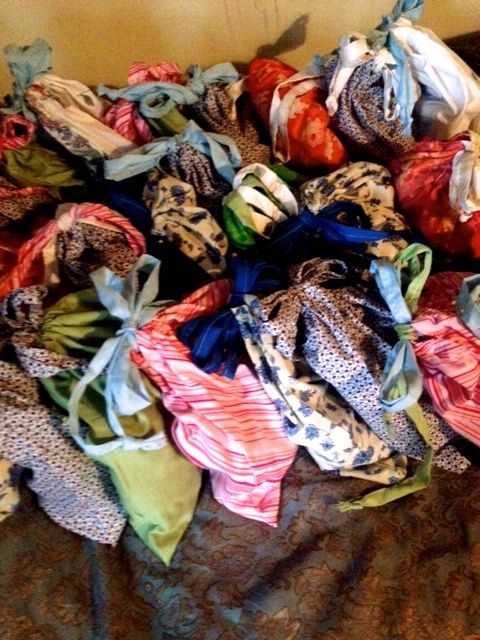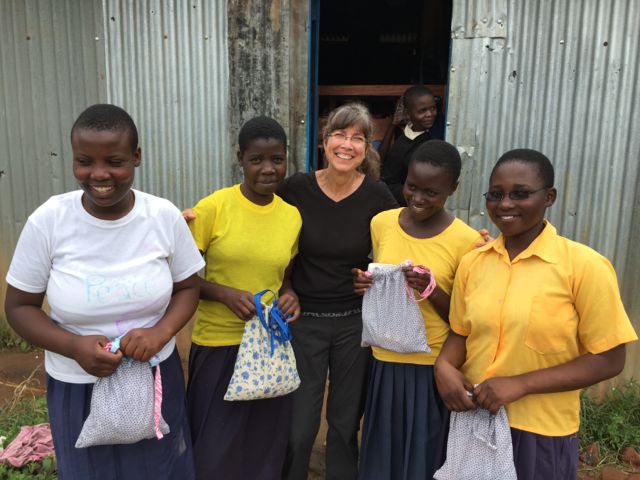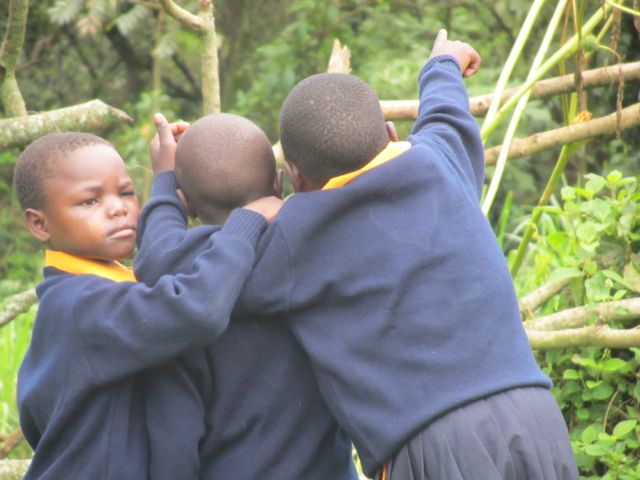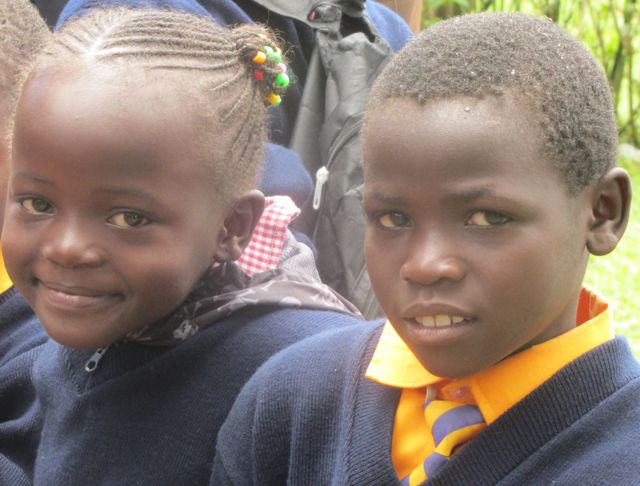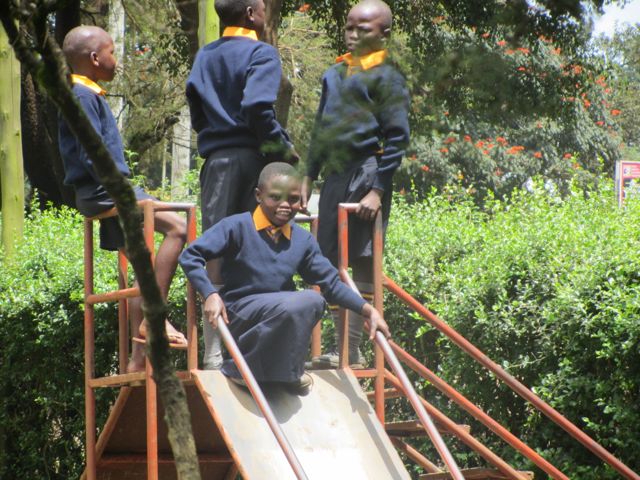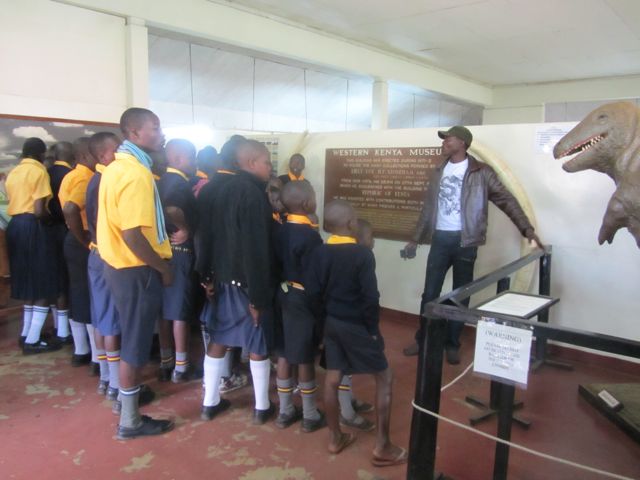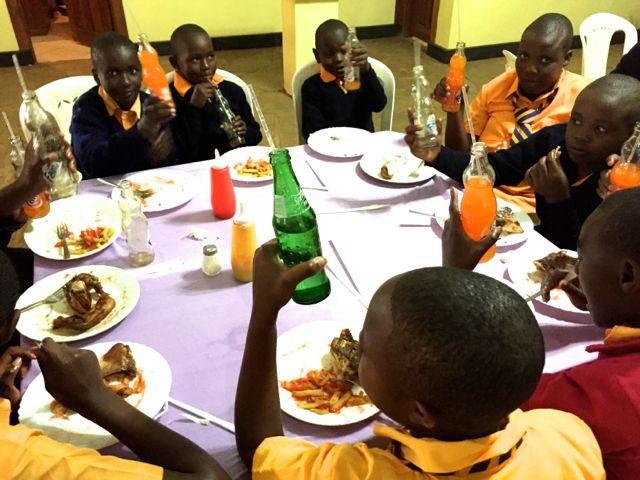— Tailoring School
 Brooks
Brooks
There are many challenges as to why or why not a project in Africa will succeed. The obstacles of generational impoverished living and being are many and monstrous to overcome. Just ask any non-profit or NGO (non-governmental organization) working in a developing country. For example, many times we have been told that if destitute women could just learn the skill of tailoring, then they would be able to provide for themselves and their families. So, we have tried. To be fair, there are some ladies who are now doing small scale mending and sewing with their machines, but we have also seen many women who could not get to school every day as they tried to survive and care for their families at the same time. The results have not been as hoped!
So, last spring when I asked church planter Justin in Rwanda what could be done to help women, once again I heard the reply, “By teaching them sewing/tailoring so they can sustain themselves and their children.” Justin assured me over and over again that in Rwanda it would be different and all of the reasons why. So, after MUCH negotiating we came to an agreement and a little center was opened in August.
Roger and I were just now lucky enough to be able to visit the center and meet the 11 new and eager students. And, I have to say, I am very impressed with the project so far. There are THREE people in place to ensure the success of the students. One is discipling and empowering them spiritually to start to live out of a different mindset as well as affirming them as they start churches in their homes and also share the love of God with others; another one is teaching them accounting and budgeting; and the third, is the tailoring teacher. Each student was given one book to keep financial records in and had to purchase on their own another book to keep patterns and notes in. Already in the first two months they have learned how to make four items: a school dress uniform, shorts for boys, and two different types of skirts. The women themselves are responsible for the sewing machines and must keep them in good repair. If they fail to come to class (M-F, 8-2), then they will be dismissed and replaced. These moms seem very anxious to learn, excited to be there and from their consistency already, I feel confident that by the end of the year, we will see 11 students, competent and ready to start their own businesses.
The marker for success and the continuation of the program will be checking in with the students three months after graduation next June to see where they are and how they are doing. If, indeed, they are stable, we plan to double the students to continue the program the following year. This program is not easy for these women. Committing to letting go of the past and breaking out of the cycle of poverty is hard. There are many things coming against them. But, we believe, that “with God all things are possible” and are so thankful that we can trust that even as He has not given up on us, so He continues to reach out to these 11 and so many more precious women here in Rwanda.
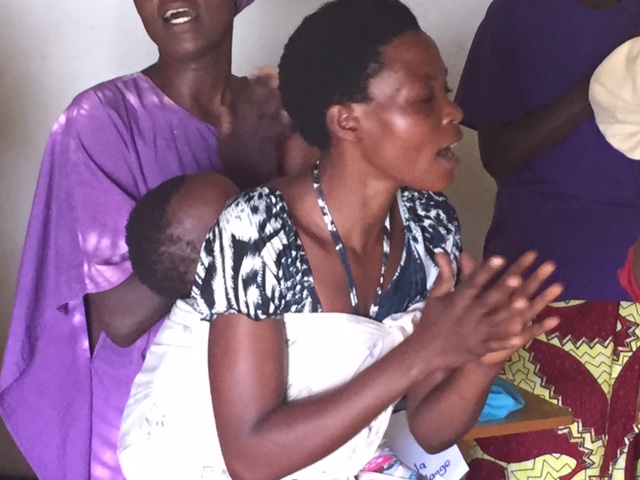
Students singing and dancing to welcome us!
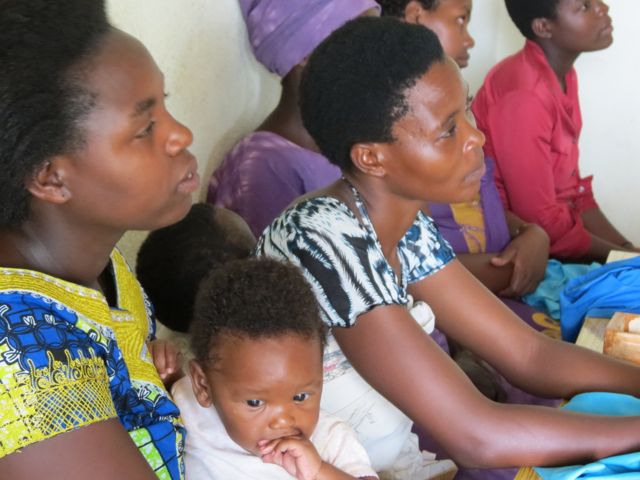
Students
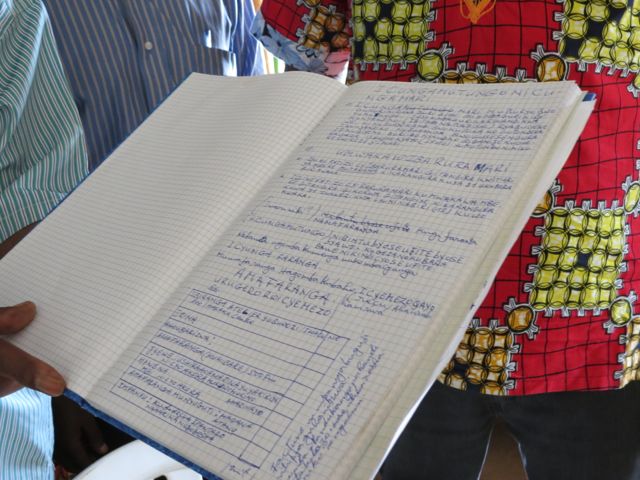
One of the student’s accounting books
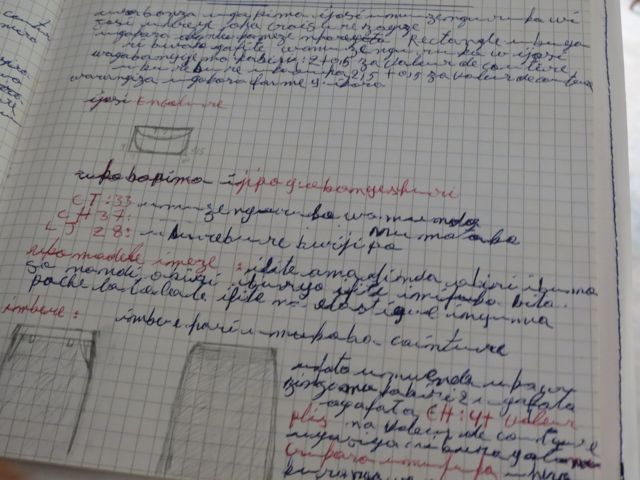
A student’s patterns and notes for tailoring
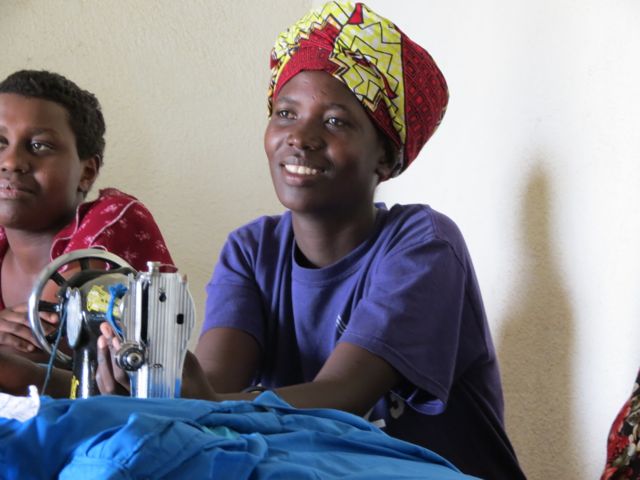
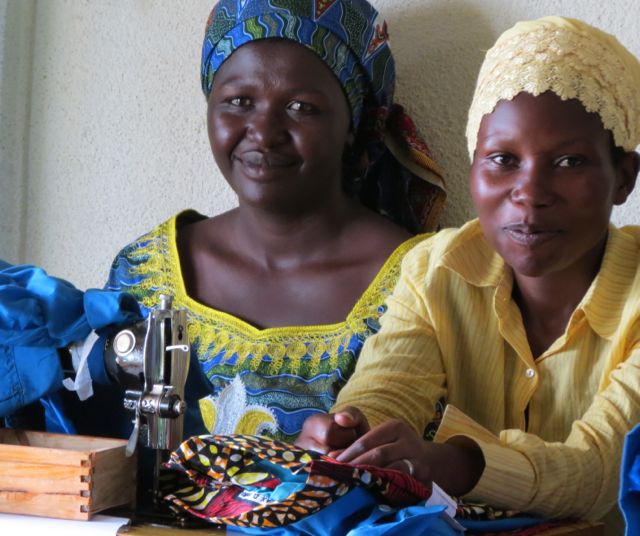
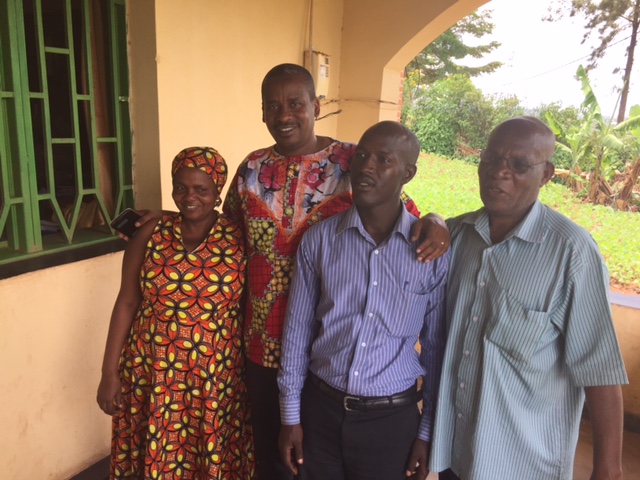
Tailoring Teacher, Church Planter Justin, Spiritual Advisor, Accounting Teacher
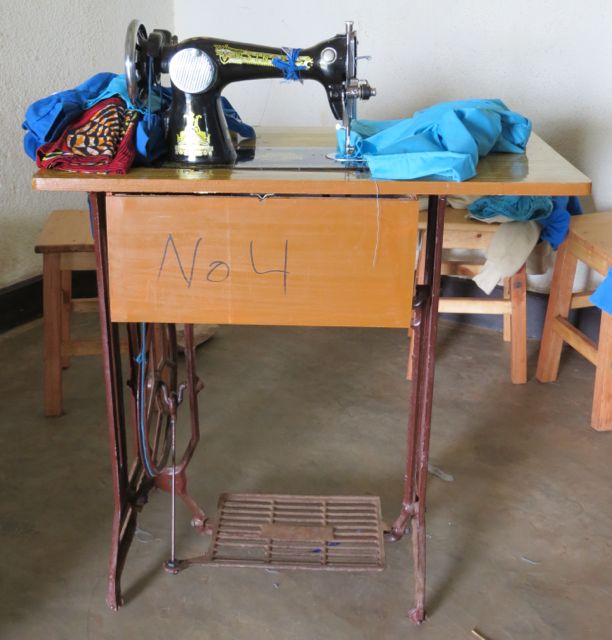
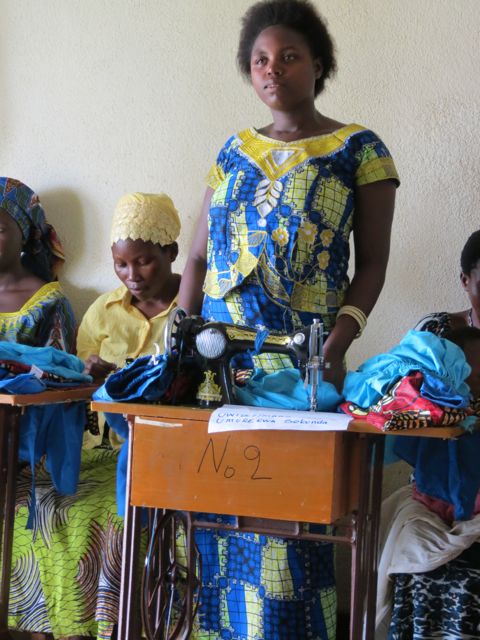
The spokesman for the group thanking all of those women in America (Women Walking for Women) who are making it possible for her to learn a skill and make a better life for herself and her kids.

